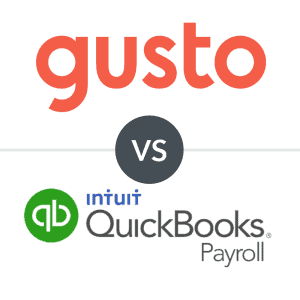Misclassifying employees can be a costly mistake for your business. Understanding the differences between the two can help you hire the right employees for your business.
Before you hire employees to keep your business running smoothly, there’s one burden that you must tackle first: determining whether to hire 1099 or W-2 employees.
The tax implications, forms, benefits, and drawbacks differ between W-2 and 1099 employees. We’ve created this post to distinguish between these key differences and eliminate the confusion about hiring employees.
The Key Difference Between 1099 & W-2 Employees
A 1099 employee is a more temporary solution to staffing issues. These employees are self-employed and receive a Form 1099 for tax purposes.
A W-2 employee holds a more stable and permanent position within your organization. These employees receive a W-2 for tax purposes.
There are additional differences between the two, which we’ll discuss in more detail throughout this post.
What Is A 1099 Employee?
A 1099 employee is also commonly known as an independent contractor or freelancer. A 1099 employee is self-employed and may perform work for one business or several.
Despite the title, these individuals are not employees of your business or any other business for which they perform work. As a result, they are not paid a salary or entitled to benefits offered to your W-2 employees.
1099 employees are paid based on the contract or written agreement you have in place. The contract may be for a single job or several. There are a number of reasons that businesses use 1099 employees. For instance, a business may need temporary help to finish a large project, or a company may employ someone with specialized skills who isn’t needed on a full-time basis.
When you hire a 1099 employee, they must fill out IRS Form W-9. You will not have to withhold or pay income taxes, unemployment taxes, or Social Security and Medicare taxes for 1099 employees.
At tax time, 1099 employees will receive IRS Form 1099-MISC, which they will use to report self-employment income and pay self-employment taxes. A 1099-MISC must be issued to any contractor, freelancer, or other self-employed individuals that made at least $600 performing work for your business.
What Is A W-2 Employee?
A W-2 employee is actually an employee of your business. This person will receive an hourly wage or salary that is agreed to upon hiring. Additionally, a W-2 employee is entitled to benefits offered by your business, including but not limited to health insurance, retirement plans, and overtime pay. Your W-2 employees may work full-time or part-time based on the agreements you’ve made upon hiring.
You will be required to withhold federal income taxes from your W-2 employees. Additionally, you will withhold and match employees’ Social Security and Medicare taxes. You will also be required to pay unemployment taxes for your employees. IRS Form W-4 is used to determine the correct amount of federal income tax withholdings for each employee.
At tax time, you will issue IRS Form W-2 to each of your employees. These forms will then be used by the employee to prepare and file their income tax returns.
Why 1099 VS W-2 Employee Classification Is Important
Failure to properly classify your employees can result in high costs and hassles for your business. Here’s why correctly classifying your employees is critical for the success of your business.
IRS Penalties
Misclassifying your employees can be a very costly mistake for your business. If a W-2 employee is misclassified as a 1099 contractor, the IRS can fine your business for each W-2 that wasn’t filed and impose penalties on wages.
Additionally, you may be required to pay unpaid Federal Insurance Contributions Act (FICA) taxes. These penalties can be extremely costly, especially if you have an employee that’s been misclassified for a long period of time or multiple misclassified employees.
Employee Lawsuits
If you’ve misclassified W-2 employees as 1099 contractors, there can also be financial penalties as a result of a lawsuit. Your employee can sue you if they feel they were wrongfully denied minimum wage, overtime pay, or benefits provided to W-2 employees within your business.
Tax Implications
Failure to withhold taxes from your employees can result in your business paying back taxes — along with additional penalties that could leave you with a hefty tax bill.
Since 1099 employees are self-employed, it is their own responsibility to file and pay taxes on the wages they’ve earned. For your 1099 employees, you are not required to:
- Withhold taxes from their paychecks
- Pay income taxes for these employees
- Pay the employer’s share of Medicare and Social Security taxes for these employees
- Pay unemployment taxes for these employees
On the other hand, you will need to withhold and/or pay taxes for your W-2 employees as follows:
- Federal Income Taxes: This is calculated based on the employee’s W-4 form. The employer withholds these funds from the employee’s paycheck and remits these payments to the IRS.
- State Income Taxes: The employer withholds state income taxes from W-2 employee paychecks and remits these payments to the IRS.
- FICA Tax: FICA tax — Medicare and Social Security tax — is collected from employee paychecks. The employer also matches these payments.
- Unemployment Taxes: Unemployment taxes are paid by the employer alone. No funds are withheld from employee paychecks.
As you can see, taxes for your W-2 employees are much more complicated than for 1099 employees. While it may be tempting to try to avoid withholding and paying taxes by simply classifying your workers as 1099 employees, this mistake can be extremely costly. In addition to paying back taxes, you may be subject to penalties including but not limited to:
- $50 fine for every W-2 that wasn’t filed
- 40% of FICA taxes that weren’t withheld
- 100% of your share of FICA taxes
- 0.5% of your unpaid tax liability each month (maximum 25%)
Additional Costs
Hiring a W-2 employee can be expensive. In addition to the taxes you’ll be required to pay for that employee, you also need to take into account other expenses, such as training and onboarding.
While this makes sense for employees that are involved in your company’s day-to-day operations, it’s not ideal for every situation. For instance, it may not make sense to hire a W-2 employee for a short-term project with a quick turnaround time or for a specialized role for a one-off project.
In these situations, it makes far more sense to hire a 1099 employee to temporarily alleviate staffing or skills shortages without having to pay payroll taxes or spend time and money training and onboarding someone new.
Attract The Right Employees
What kind of employees are you looking for? The answer varies from business to business, so it’s important to take stock of what your business needs.
If you have projects with quick turnaround times and only need temporary help, 1099 employees may be the best fit for your business.
On the other hand, if you prefer to have loyal employees that work consistently over the long term to help keep your business running, W-2 employees are likely the better option.
Should You Hire A 1099 Or W-2 Employee?
Are you ready to hire employees, but you’re not sure which type you need for your business? Here’s how to decide — and keep in mind that many businesses use a combination of 1099 and W-2 employees.
The Pros & Cons Of 1099 Employees
Pros
- Staffing flexibility
- Less expensive than hiring a W-2 employee
- No firing or layoffs
- Ideal for short-term work, specialized jobs, or one-off projects
Cons
- Lack of control over hours or how work is done
- Employee may not be available for future projects
There are a few advantages to hiring 1099 employees. You will not be required to withhold and pay payroll taxes for 1099 employees. You are also not required to pay a salary or provide benefits to these employees. For short-term projects, you can save quite a bit of money by using 1099 employees.
Once the terms of the agreed-upon contract have been filled, the independent contractor is free to take on other projects with other businesses. You do not have to worry about firing or laying off the employee, which can be stressful for all parties involved.
There are also drawbacks to using 1099 employees. You have less control over independent contractors. The 1099 employee can choose his or her own hours provided that their work is completed within the set deadline. The employee can also choose how they complete the work, even if it’s through a method that’s different than what you expect.
This can be a slippery slope for employers, as trying to set hours or dictate how work is completed crosses over into W-2 employee territory and can result in misclassification, tax penalties, and having to pay lost wages and benefits to the employee.
The Pros & Cons Of W-2 Employees
Pros
- More control over employee hours and how jobs are completed
- Increased loyalty & commitment
- Ideal for long-term work
Cons
- More expensive
- More time is required to find, onboard, and train employees
- Firing or laying off employees may be necessary
W-2 employees are going to help you tackle the day-to-day operations of your business. These are the employees that earn a salary or hourly wage and receive benefits offered by your company. You can set hours for your W-2 employees, as well as train them on how to properly do their job.
Your W-2 employees will also be more loyal and consistent. You won’t have to worry about them taking on new clients and being unable to perform work for your business. Additionally, you can offer benefits that increase employee morale and better attract high-achieving, hard-working, and committed employees.
However, these benefits come at a cost. Employment taxes also add to the costs of hiring a W-2 employee. You (or other staff members) will also have to take time to onboard and train your employees.
You’ll need to be careful to ensure that you meet all employment laws as well, which can get complicated. This includes:
- Minimum wage & overtime pay
- Family & medical leave requirements
- State worker’s compensation requirements
- Withholding & paying employment taxes
Running payroll can also be complicated, but fortunately, this burden can be alleviated for both W-2 and 1099 employees with the use of payroll software.
You also need to consider what happens when it’s time to separate from the employee, whether it’s due to budget cuts, lack of work, or employee performance. You will have to lay off or fire the employee, making sure that you understand the legalities associated with these actions.
How To Choose The Right Employee Structure For Your Business
With a better understanding of W-2 and 1099 employees, the next step is to determine which employee structure is better suited for your business.
1099 employees are better suited for short-term needs. W-2 employees are the better fit if you need consistent, loyal employees to perform work over a longer period of time.
Let’s take a look at a few specific examples to help you determine what employees to hire for your business.
| The Problem |
W-2 Employee |
1099 Employee |
| Your project requires design, but you don’t have an in-house graphic designer. You do not regularly have projects that require design. |
|
Hiring a specialized independent contractor is the most cost-efficient and fastest way to complete your project. |
| You’re a sole proprietor that has taken on too many projects. You need someone to take on some of the projects until you’re caught up. |
|
Outsource your extra work to an independent contractor. |
| You own an ice cream parlor that operates year-round. However, business significantly increases during the warmer months, and you need additional staff. |
Businesses that have seasonal increases should hire W-2 employees, even if the employee is only needed for the season or on a part-time basis. This legally allows you to set hours for the employee and ensure that they are trained properly on your business procedures. |
|
| You have been hired to take on a project, but you can’t meet the deadline with your current staff. You need an employee that can help finish the project on time. |
|
Hire an independent contractor to help finish the project. Make sure a contract with deadlines is in place, and also remember that you will be unable to set a 1099 employee’s hours or dictate how the work is completed. |
| You’re ready to hire new employees, but you want to give them a trial period to make sure it’s a good fit. |
If you plan to have your new employees report to work at a certain time, go through training, and follow your business procedures, you will need to hire W-2 employees. This is true even if the employee doesn’t continue past the training period. |
|
| Your business is booming, and you no longer have time to tackle accounting. You need someone to maintain the books regularly, but you don’t need a full-time employee. |
|
If you have a recurring job that needs to be performed on a part-time basis, such as weekly bookkeeping, hire a 1099 employee to tackle this task. |
| You want permanent, stable, and steady employees that come to work at set hours and perform duties assigned to them. |
For this scenario, W-2 employees are a permanent solution to staffing issues. W-2 employees can help you complete daily operations. |
|
How To Determine If Your Employees Receive A 1099 Or W-2
If you already have employees, look no further than the IRS to determine if these employees are classified correctly.
The IRS outlines three categories to consider when classifying your employees: Behavioral Control, Financial Control, and Relationship.
Behavioral Control
Your employee may be a W-2 employee if:
- You set your employee’s hours and require the employee to be in a specific place during that time (i.e., your retail store or office building)
- You require your employee to use or purchase specific supplies or equipment to do their job
- You require training or provide detailed instructions for how to complete the job
Financial Control
Your employee may be a W-2 employee if:
- Your company reimburses them for travel and other expenses
- You pay them an hourly wage or salary on a regular basis (i.e., weekly or bi-weekly). Most 1099 employees work for a flat fee per project.
- Your business has a significant investment in the tools and supplies needed to complete the job
- The employee works only for your company and does not provide services to multiple businesses
Relationship
Your employee may be a W-2 employee if:
- The employee is provided with benefits, such as health insurance, a retirement plan, or vacation pay
- The relationship between you and the employee is indefinite. In other words, you will continue to use the employee on a regular basis rather than for a specific period of time.
- The employee can terminate their employment at any chosen time. A 1099 contractor can only legally do so if allowed under their contract with your business.
All conditions outlined above do not have to be met in order to determine the status of your employees. For example, let’s say you require an employee to be in the office Monday through Friday for a set period of time. Even if no other conditions from the bulleted lists apply, this employee is still considered a W-2 employee.
If you’re still unsure or you have a unique situation not covered in this post, the IRS has a load of resources at your disposal to help you determine the status of your employees.
Do Employees Prefer To Be 1099 Or W-2 Workers?
Every person has their own goals for their career, so the preference for being a 1099 or W-2 employee depends on who you ask.
Many people like the flexibility of being an independent contractor. They can choose their own clients, take on the projects that interest them the most, and set their own rates and terms. A person that likes doing many different jobs, taking on specialized work that fits their skill set, and having the freedom to complete work when they want using their own methods would likely prefer being a 1099 employee.
Workers that prefer to be W-2 employees want steady employment that comes along with a steady paycheck. They don’t want to seek out their own clients and projects. They understand that their employer has the upper hand when it comes to when they work, how much they get paid, and how tasks are performed in the workplace. People that want stability with one employer don’t want to worry about tracking expenses and paying self-employment taxes and are comfortable with being managed would likely prefer being a W-2 employee.
The Bottom Line On 1099 VS W-2 Employees
By determining the needs of your business first, you can better decide whether to hire 1099 or W-2 employees — or maybe even a combination of both. 1099 employees are a good choice for your business when you have short-term projects or require a specialized skill set to get a project out the door. While you won’t be able to control when or how the employee works, you’ll avoid time-consuming training and can avoid paying employment taxes.
However, if you need employees for a longer period of time and need them to be at a specific job at a specific time doing work according to company procedures, you need to hire W-2 employees. Yes, hiring and training can be time-consuming. Yes, you will be required to pay employment taxes. However, doing everything by the book can help you avoid costly lawsuits or tax penalties that can severely impact your business.












